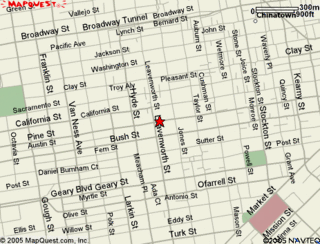After decades of attempting to dam the flow of Mexican immigrants crossing into the United States illegally, federal agents say a new crisis is emerging along the southern border and they are helpless to stop it. Non-Mexicans are spilling over the border in record numbers - some from countries with terrorist ties - and most are set free soon after being captured. Already this year, the number of non-Mexican apprehensions has far outpaced last year's total in just eight months. And while they are still a relatively small percentage compared with the number of illegal Mexicans, critics say the federal government's policy in dealing with them is far more dangerous.
Because OTMs, or "Other Than Mexicans" as the Border Patrol classifies them, must be returned to their country of origin, they cannot be simply sent back across the southern border, as most Mexicans are. Under US law, they must be detained (in the US) pending a deportation hearing. The problem is, immigration detention centers are packed, so most OTMs are given a court summons and told to return in three months. A full 85 percent don't. According to the Border Patrol, some 465,000 OTMs have taken advantage of this "catch and release" policy to settle here in the US.
"It's an insane policy which encourages OTMs to come into the country illegally, and we shouldn't be shocked that they are coming in record numbers," says T.J. Bonner, president of the National Border Patrol Council, which represents more than 9,000 agents. In fact, he says, after crossing the border, many OTMs simply flag down agents or walk up to them and surrender, knowing they will be released.
"The word is out," says Mr. Bonner. "They know that as soon as they are caught, they will be free to roam at will." In a hearing in the House Appropriations Subcommittee on Homeland Security earlier this month, Border Patrol Chief David Aguilar reported that his agency has apprehended 919,000 illegal immigrants so far this year - 119,000 of whom were OTMs.
That puts the agency on pace to hit 150,000 such apprehensions by the end of the fiscal year, almost triple last year's high-water mark of 65,000 OTM apprehensions. In fiscal 2003, the numbers were around 40,000, and in 2002 and 2001, around 30,000 each.
"We should be greatly concerned because OTMs do not register, their travel documents are suspect, and they have no biometric records that can be checked to verify identity," remarked the appropriations subcommittee's chairman, Harold Rogers (R) of Kentucky.
Most are from Brazil and Central America, but Mr. Aguilar reported that last year 644 came from "countries of concern." What's most disturbing, say immigration experts, is that the increase in OTM apprehensions comes on the heels of the US war on terror.
"We are not protecting Americans against the next terrorist attack," says Michael Cutler, a former special agent with the Immigration and Naturalization Service and a fellow at the Center for Immigration Studies in Washington. "There are so many holes in the system."
He points to the OTM loophole as one example. Another is the Visa Waiver Program, which allows residents from 28 countries, including Canada, to enter the US without getting a visa in their home country. Mr. Cutler believes everyone entering the US, no matter what their country, should have to obtain a visa that documents personal information, the purpose of the visit, and contact information once they arrive. Shoe bomber Richard Reid, for instance, was born and raised in London and boarded a plane for the US with only a passport.
"We are all fixated on his shoes, and now passengers are required to take off their shoes, yet nobody wants to deal with the issue of how he was able to enter the country in the first place," says Cutler. Other critics say the guest-worker proposal, which is being touted as a way to know who is here, ultimately leaves the door open for document fraud and illegal entry.
In the end, says Cutler, "the number of OTMs coming in is a barometer of how effective we are at deterring illegal immigration." To help combat the increase in non-Mexican crossings, two US cities have been participating in a pilot initiative, known as the "expedited removal" program. Border Patrol agents in Laredo, Texas, and Tucson, Ariz., are able to make decisions without the help of immigration judges in deciding whether a person has a valid case to fight deportation. And agents in the Rio Grande Valley sector, where the majority of OTMs cross, are being trained in the program.
Still, even under the expedited process, agents are finding a familiar problem: There is nowhere to house the immigrants while they wait to be deported. Border-state politicians have been clamoring for years for more funding for detention centers, and some worry that if apprehended Mexicans began requesting immigration hearings instead of taking "voluntary departures," the problem would become even more dire.
Already, says former INS agent Bonner, the recent surge in OTM apprehensions is tying up precious time and manpower along the border. In some areas, like the Rio Grande Valley, some 75 percent of the sector's resources are devoted to dealing with the problem. Border Patrol agents, he says, know that most OTMs have no intention of returning for the court hearing - and that is incredibly frustrating for them.
"It's more than a little demoralizing," he says. "They feel like social workers. They are not enforcing the law; they are simply enabling people to break it - and that goes against the grain of any law enforcement officer."


